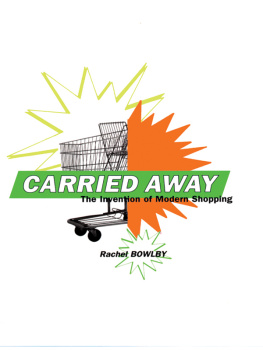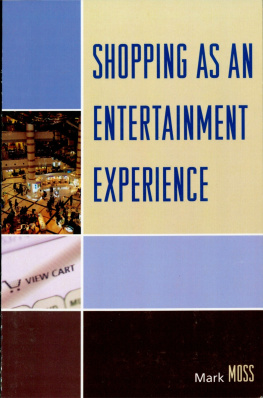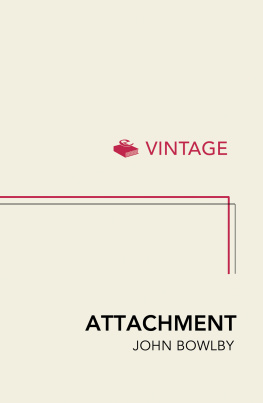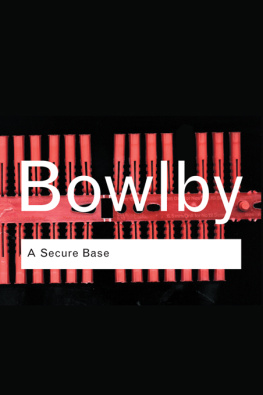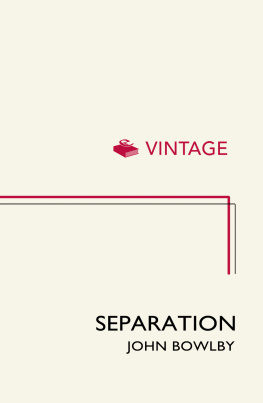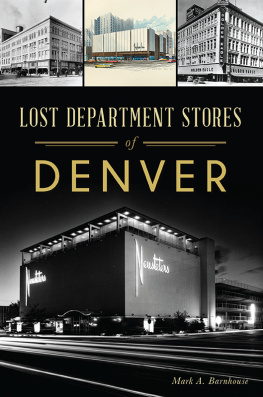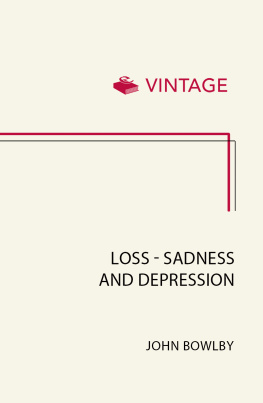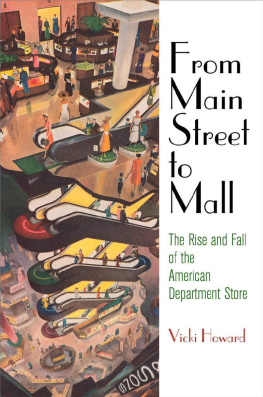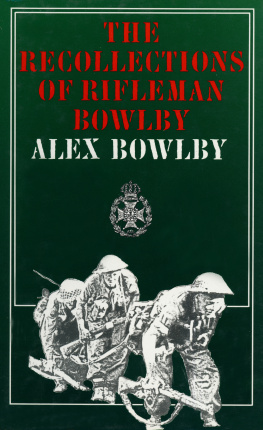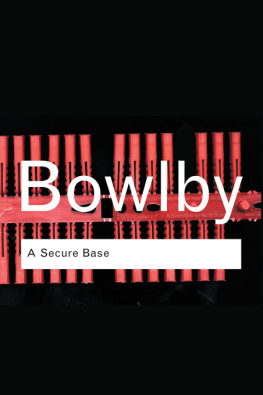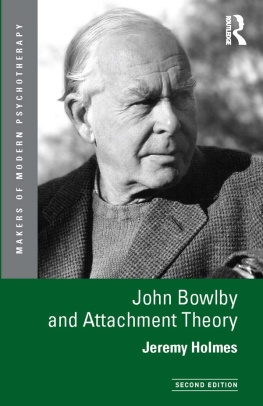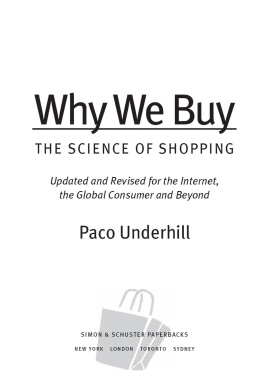Carried Away
by the same author
Just Looking: Consumer Culture in Dreiser, Gissing and Zola
Feminist Destinations and Further Essays on Virginia Woolf
Shopping with Freud
Still Crazy After All These Years: Women, Writing and Psychoanalysis
Carried Away
The Invention of Modern Shopping
RACHEL BOWLBY

COLUMBIA UNIVERSITY PRESS
NEW YORK
Columbia University Press
Publishers Since 1893
New York Chichester, West Sussex
cup.columbia.edu
Copyright in the name of Rachel Bowlby 2001
First published in 2000 by Faber and Faber Limited in Great Britain
All rights reserved
E-ISBN 978-0-231-50444-7
Library of Congress Cataloging-in-Publication Data
Bowlby, Rachel, 1957
Carried away: the invention of modern shopping / Rachel Bowlby.
p. cm.
Includes bibliographical references and index.
ISBN 0231122748 (cloth : alk. paper)
I. Title.
HC79.C6 B69 2001
306.3082dc21 00056123
A Columbia University Press E-book.
CUP would be pleased to hear about your reading experience with this e-book at .
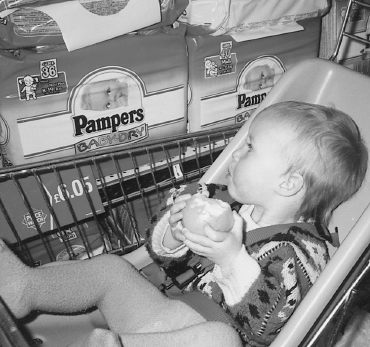
Safeway, Lewes, East Sussex, 1995.
Saturday, 21 September 1996; IKEA, Purley Way, South London
It is late in the afternoon and the lines of wide carts loaded up with flatpacks of future furniture stretch back from the row of checkouts. Back and back, right into the warehouse section, they bump up against the people still trying to pick out their own cardboard packages and happily oblivious, as yet, to the fate in store for them.
But gradually the news is getting through. The computers are down; all the purchase transactions are having to be done manually. The prospect of a handwritten receipt from IKEA seems quaintly unreal. Nobody, nothing moves, forwards or backwards. Nobody protests. Nobody seems to be talking to anyone else, passing the time in complaint or chat. We all stand sullenly by our carts, keeping our places, half-heartedly trying to decode the announcements. And nobody walks out, back through the store or out past the checkouts, leaving their cart behind.
We just cant leave now. These carts bear the tangible results of an afternoons hard work. It may have been fun at the time, but now the prospect of going home empty-booted obliterates that from view. If we let go of the goods, we would have nothing to show for all this time and effort. And we are attached to these things already. This big brown box contains what a joyous, newly verbal two-year-old, still trailing clouds of consumerly innocence, is already proudly calling my IKEA bed. Here we are, voluntarily trapped inside a store that we are unable to leave. Why did we come here in the first place? What is keeping us here? Is our behaviour perverse, a stubborn refusal to give up? Or is it calmly rational, suffering the short-term frustrations and making the best of a bad situation? In this IKEA world there isnt much to choose between the two, or much to choose at all.
*
The checkout come to a dead halt is a long-standing nightmare for retailers. For decades, self-service stores of all kinds have sought to ease what they recognize as that difficult moment when customers finally emerge from the dreamier delights of trolley-filling to reach the point of purchase. There, reality intrudes in the form of the monetary transaction, and the trance of the aisles is broken by a slow line at the checkout. For supermarkets, barcode technology was the godsend of the 1980s; but shut down the computers, and chaos slow despondency is come again.
IKEA with the computers down might be a comic vision of a late twentieth-century nightmare. We are familiar with tales of shopping as exploitation, addiction, false allure. As we wait, the frame for pondering the experience is already there for us: the store that you cant get out of as a microcosm of this consumer world, where shopping is endless and always, everywhere the same. One IKEA is much like another, each as reproducibly Swedish as the next, from Leeds to Groningen and from Paris to New Jersey. For critics of over-consumption, the over-stark contrast between movement and stoppage, dream and reality, that the stores seek to parry is ever present not the avoidable contingency or the dreaded emergency, but the staple metaphor of shopping as hellish confinement.
Consumer culture lends itself to images of unconscious imprisonment. The deluded are unaware that their desires are for worthless or superfluous things, or that they are shaped if not entirely created by the skills and tricks of advertising and other forms of presentation. They do not know that there is a better and freer world than the shopping world in which they find themselves; for them it has no exit, nor do they seek one.
Opposite dark pictures like these stand their mirror images: shopping as freedom of choice, pleasure, material progress. Instead of confinement, darkness, hidden controls, shopping in its positive guise appears as sheer heaven or, more prosaically, as the proud symbol of modern mobility. People are no longer restricted to their traditional horizons, whether geographical, social or psychological; consumer choice epitomizes their liberty to move away from old constrictions, to indulge the freedom of new desires and demands and to take on different identities as they wish. This is also the dream world of shoppings own self-images, its beautiful stores and its glossy advertisements, where peoples desires are treated as forever open to change and fulfilment.
This book is about some of the strange shopping histories that lie behind the ironies of that peculiar IKEA afternoon, when all the options of shopping were jammed as immobility and impasse but the customers could not bring themselves to leave.
Supermarket, anywhere, around 1999
Here you are in the middle of the things. You are half-way through your list. You steer your way smoothly up and down, putting out your hand to take something at intervals, and placing it in your trolley. You know what you want, what it looks like, whereabouts it will be. You see different categories of product, differences between labels and brands and sizes that enable you to home in quickly on what you are seeking. This, not that. When you have finished, the seventeen items you have expertly selected from among the twenty thousand or so different possibilities are checked through one by one. A job has been efficiently done.
Here you are in the middle of the things. You have been here for quite a while. Twenty minutes, maybe half an hour. You came in to get something for tonight and thought you might as well stock up a bit while you were here. Everywhere around you are colours, letters, figures, pictures, all made to attract you. This and that. There is always something new or something on offer. If something appeals, youll pick it up, perhaps put it back. But your mind is not really on what youre buying or looking at; youre thinking of other things. You will be here for some time, and eventually you will depart, with the same seventeen things.
What is the difference between the two? None, from the point of view of the receipt, which lists everything both shoppers buy in all-informing detail. To all supermarket intents and purposes, they are one and the same person; and maybe they are. In another life, on another day, the first shopper might easily slip into becoming the second; and the second, when pressed, might find herself or himself acting like the first.
The first shopper thinks of herself as in control, taking what she wants and only what she wants. The second shopper sees herself as comfortably susceptible to all the attractions of the place. The first shopper knows about the second and regards her with a certain affectionate scorn. The second shopper knows about the first and thinks she is missing out on the pleasure of shopping. Both, as well, partly share the others opinion of them. And the first would also confess that she gets a certain pleasure out of her efficiency, while the second would declare that she also uses the time in the supermarket productively, unwinding the rest of her day as she drifts. Both, at times, when in a particular frame of mind, become the other one. The first is sometimes waylaid by a striking new product, while the second rushes urgently past, blind to everything but the two or three things she came in for.
Next page
